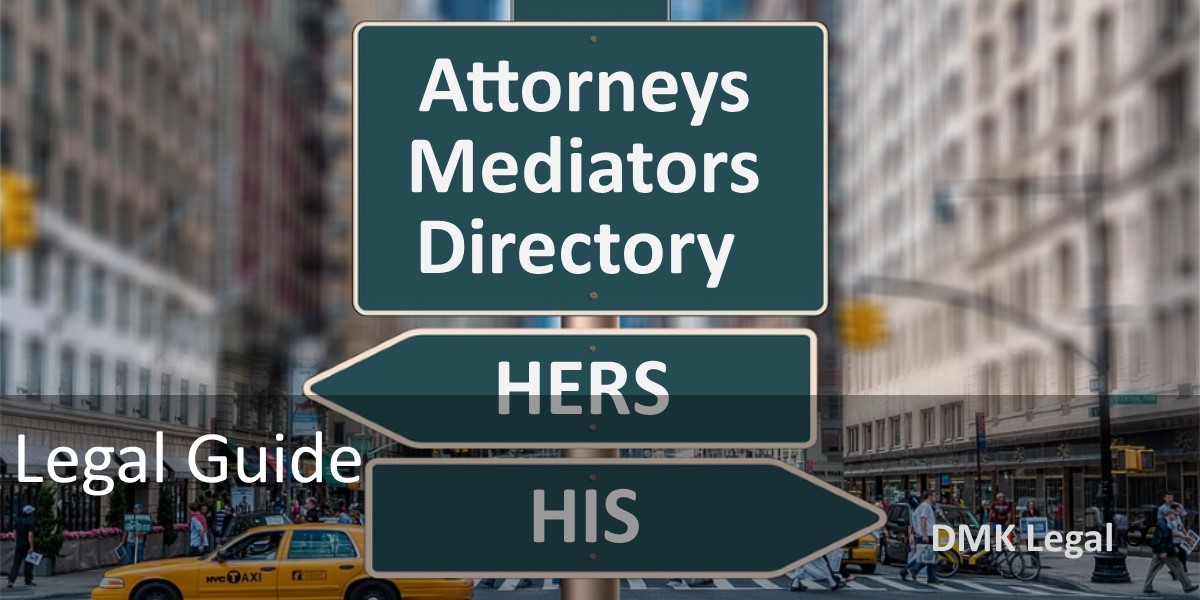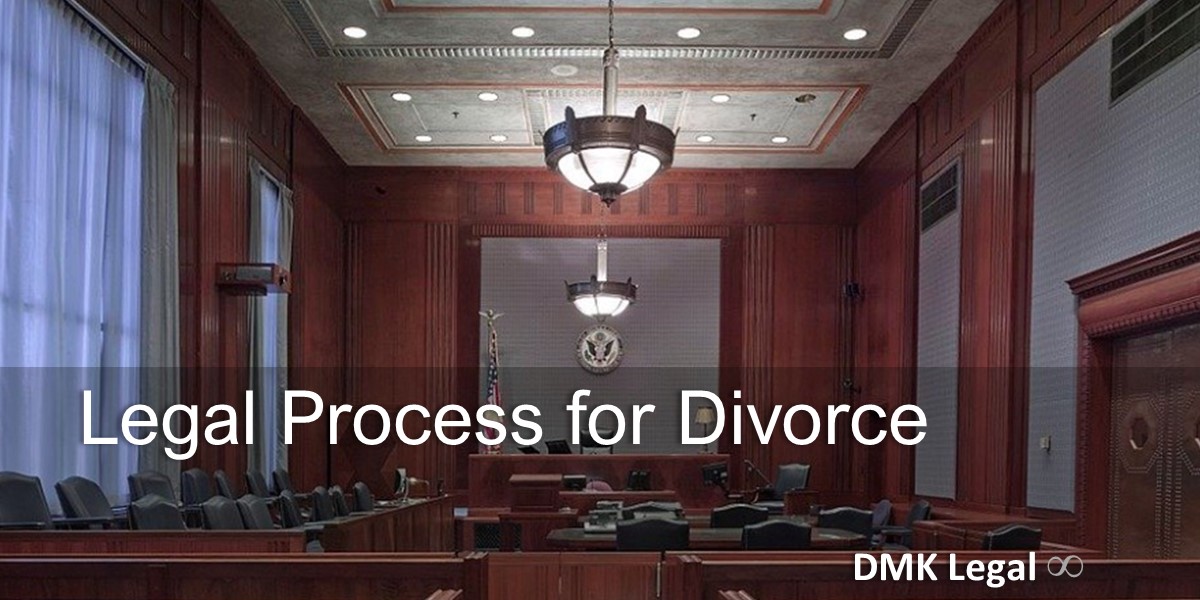There are numerous ways to divorce. It will be important to know each option available in your state in order to choose the right divorce plan for you and your spouse. We have listed several methods below. This list may have options not offered in your state. It may also not include options available in your state. It's important to discuss state laws with a local attorney as they pertain to your specific circumstances.
Also, refer to the DMK article Legal Process for Divorce for comprehensive information related to the overall process and types of divorce offered as they correspond to the methods to establish a divorce, as listed below.
Collaborative
Not offered in all states.
A newer method of divorce not offered by attorneys who have not been specially trained in Collaborative Law
Each spouse hires his/her own attorney in the collaborative divorce process. Before the process begins, all parties and participants must sign a Participation Agreement. The agreement establishes varying aspects of the process, perhaps most significant is that no litigation will begin during the process and all parties are committed to a non-adversarial resolution to the dispute. Other important aspects of the process include the best interest of the children and that neither party will take advantage of the other for mistakes as part of the legal resolution of the divorce process.
Both attorneys agree to withdraw from the case if the collaboration is unsuccessful. This means any terms of the case go before a judge, the parties will need new representation.
The attorneys do not negotiate outside of the collaborative method to establish terms of the divorce to include, but not limited to, alimony, child support, custody & property distribution. All parties to the divorce, neutral experts and attorneys work directly together in meetings to explore creative strategies to reach an agreement of disputed terms.
The attorneys draft and file the necessary paperwork as required by the family courts in the couple's residing jurisdiction.
The terms agreed upon in the collaboration are included in a Divorce Settlement Agreement, upon approval by the courts, is incorporated into a document often referred to as a Divorce Decree.
While most collaborative meetings include the attorneys, at times, the attorneys may not be present.
Usually, this type of divorce can be more affordable than other options such as divorce litigation and, in some cases, more expeditious than a courtroom battle.
Mediated
Not offered in all states.
A mediator will work with each spouse to resolve the negotiations related to the settlement to include, but not limited to support, custody, asset and debt allocation and other terms of the settlement agreement.
Often, when spouses wish to avoid court or further legal expenses and their attorneys have reached an impasse, they are referred to a mediator.
The couple can hire a mediator independently or one can be appointed by a court or referred by an attorney.
Mediators can not provide legal advice but may give general legal information.
Mediators differ from an arbitrator and judge in that they do not decide the outcome of the case. They help the parties come together on the terms and prepare a mediation report based on the decisions made during the mediation.
Both spouses share a mutual attorney or a mediator to manage the negotiations of the divorce settlement but does not provide resolution like a judge.
In some states the mediator is not required to be licensed, mandated by any governing board or have formal training.
Arbitrated
Some states limit arbitration to non-child related matters.
Usually this type of divorce process is reserved for high-profile celebrities or wealthy couples who wish to keep the specifics of the divorce negotiations private.
Usually an expensive process that involves each spouse providing his/her own attorney and a judge or retired judge to arbitrate in a private, neutral location.
Arbitrators are different from mediators in that mediators provide assistance to both spouses to develop a mutually agreed upon resolution whereas an arbitrator determines a binding resolution.
It is very unusual, bordering on never, to be granted an appeal following an arbitrated divorce.
Litigated
The most complicated, costly and usually emotional cases are those that are litigated before a family court. Each spouse will have the opportunity to have a legal representative present their case and the judge will make a permanent ruling.
Each spouse obtains his/her own attorney.
Cases generally go to trial when couples can not agree on the terms of the settlement.
The courts will determine all of the terms or, in most cases, can determine only those that which a couple can not agree.
Most divorce cases (95%) do not go to trial.
If a cases goes to trial, it can result in a lengthy and expensive divorce. Most divorce cases that go to trial take 1-3 years to settle.
Aside from the higher cost of legal fees, many times litigation cases better serve the less powerful spouse who earns less or has had less opportunity for earnings.
These cases can be appealed, but it is costly and difficult. A modification to the terms can be requested, but must be approved by the judge. If the modification is contested by one spouse, it may go back to trial. Modifications require a consistent and significant change in circumstances.
D-I-Y
There are numerous services online that help spouses complete their own paperwork associated with filing for divorce.
The couple can also contact their local family court to get the established requirements to file a summary divorce.
Both spouses will negotiate their settlement directly with one another.
These are best for short term marriages, marriages with few marital assets and debts, no children and custody agreements and no established support.
Each spouse should also have a reasonable interest in cooperating with each other in order to mutually facilitate the divorce.
Disclaimer
The information provided by respective owner's ("we", "us" or "our) on Divorce Me Knot (referenced also as "DivorceMeKnot.com", "dmk", "DMK", "OurDMK.com", "OurDMK", "application" or "site") is for general informational purposes only and is subject to change with or without notice. All information on our site and application is provided in good faith, however we make no representation, guarantee or warranty of any kind, express or implied, regarding the accuracy, validity, adequacy, reliability, availability or completeness of any information on the site or application.
The information in articles and all content on this site should not be considered psychological or behavioral health therapy, counseling or legal, financial, real estate, mortgage, insurance or professional advice. It should not be used in place of professional advice from a licensed professional or credentialed expert. Providers of content on this site, herein known as "Contributors" (inclusive of, but not limited to writers, bloggers, editors, employees, developers, graphic designers, advertisers, partners, affiliates, references, experts, professionals and site owners) are not legally liable for any misinformation, errors or omissions. Names, details and images may have been changed in the content of this site.
Under no circumstances should DMK and/or it's Contributors have any liability to users of the site for any loss or damage incurred to users as a result of the use of this site or application or reliance of any information provided on the site or application. Use of the site or application and reliance on any information from the site or application is solely at the user's own risk.
For complete site disclaimers review "Disclaimers" on this site or click the link below.




















 How to resolve AdBlock issue?
How to resolve AdBlock issue?